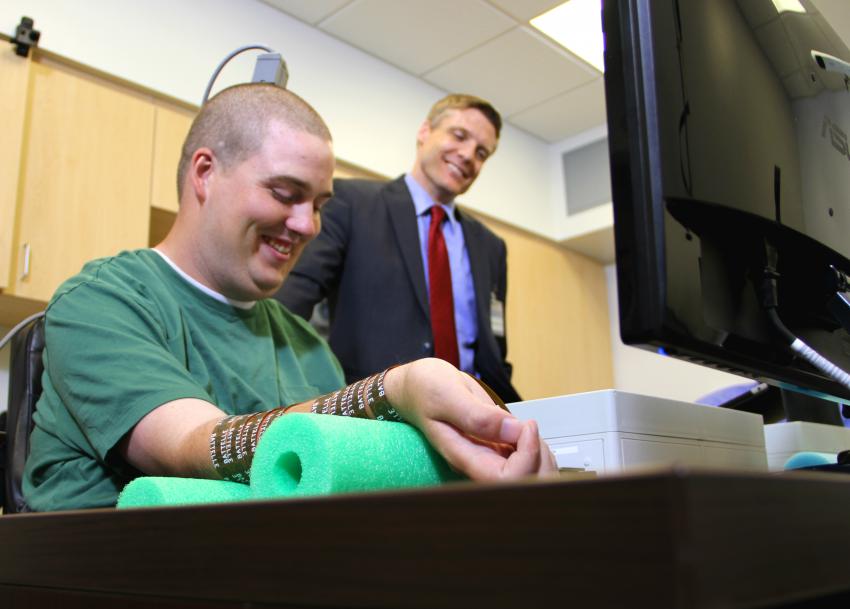A medical first: Quadriplegic man controls arm using a chip implanted in his brain
The first of its kind procedure used electronics to bypass the patient's spinal injuries and relay signals directly from the brain to the muscles

Your support helps us to tell the story
From reproductive rights to climate change to Big Tech, The Independent is on the ground when the story is developing. Whether it's investigating the financials of Elon Musk's pro-Trump PAC or producing our latest documentary, 'The A Word', which shines a light on the American women fighting for reproductive rights, we know how important it is to parse out the facts from the messaging.
At such a critical moment in US history, we need reporters on the ground. Your donation allows us to keep sending journalists to speak to both sides of the story.
The Independent is trusted by Americans across the entire political spectrum. And unlike many other quality news outlets, we choose not to lock Americans out of our reporting and analysis with paywalls. We believe quality journalism should be available to everyone, paid for by those who can afford it.
Your support makes all the difference.A 23-year-old quadriplegic from the US has become the first paralyzed man ever to move his hand and fingers using just his own thoughts.
Ian Burkhart, from Dublin, Ohio, was paralyzed four years ago during a driving accident and is now the first patient to use Neurobridge – an electronic neural system that bypasses spinal cord injuries to transmit instructions directly from the brain to the muscles.
"It's much like a heart bypass, but instead of bypassing blood, we're actually bypassing electrical signals," said research leader Chad Bouton in a press release. "We're taking those signals from the brain, going around the injury, and actually going directly to the muscles."
The technology allows for voluntary and functional control of paralyzed limbs, using a microchip smaller than a pea implanted in in the region of Burkhart’s brain responsible for arm movements to pick up signals from his brain.
The chip interprets these signals using algorithms that learn to match brain activity to muscle instructions and then sends them to an electrode stimulation sleeve on Burkhart’s arm. This sleeve then directly stimulates the proper muscle movements in a tenth of a second.
Other research in this area has successfully used microchips implanted in the brain to control robotic limbs or used computers to control paralyzed limbs – but this is the first to use a patient’s mind.
Dr. Ali Rezai, a neuroscience researcher from Ohio State who implanted the chip in Burkhart’s brain, said that in the future the technology could be used to help patients overcome brain and spinal cord injuries such as strokes.
Burkhart said that he participated in the six-month trial at Ohio State’s Wexner Medical Center partly as a chance to help other paralytics:
"I've realized, 'You know what? This is the way it is. You're going to have to make the best out of it.' You can sit and complain about it, but that's not going to help you at all. So, you might as well work hard, do what you can and keep going on with life."
Join our commenting forum
Join thought-provoking conversations, follow other Independent readers and see their replies
Comments